Sushmi Dey in New Delhi
Indian pharma companies have depended heavily on drugs coming off patent in the US to fuel their growth.
But with the patent cliff nearing its end, they are now widening their horizon to include new growth areas.
In the last one month, Indian pharmaceutical company Lupin has won US Food and Drug Administration nod for three of its contraceptive pills, and has at least nine approvals pending with the regulator.
Another Indian company, Glenmark, currently sells 10 of its contraceptive pills in the US and has at least 10 products in the category awaiting approval.
The new focus on contraceptives signals a shift in the strategy that has kept Indian pharma firms in good health in recent years -- namely, banking on generic version of drugs going off patent in the US.
. . .
Firms go beyond patent cliff for growth
Photographs: Ali Jarekji/Reuters
As the supply of new off-patent drugs peters out, pharma firms are turning to contraceptives, dermatology and similar niche segments to fuel the next round of growth.
The patent cliff -- a phrase used to describe the sudden rush in expiry of patents for blockbuster drugs starting 2011 -- is expected to come to an end in 2015.
In 2012, drugs worth $36 billion came off patent, but fewer expiries are expected after 2013.
The tapping out of this bounty will mean the end of the lucrative first-to-file rights that gives the company that first challenges the patent of an expired drug an exclusive right to sell the medicine for 180 days.
FTFs have been a huge money-spinner for Indian firms, as sales of some of the recently expired drugs run in excess of several billion dollars.
Pfizer's anti-cholesterol pill, Lipitor, whose generic version is now sold by Ranbaxy in the US, has sales in excess of $10 billion a year.
Another expired Pfizer drug, Caduet, used to treat hypertension and chest pain, which again is with Ranbaxy, generates annual sales of $339 million.
. . .
Firms go beyond patent cliff for growth
Photographs: Brendan McDermid/Reuters
Dwindling numbers
In 2012, drugs worth $ 35,514 million went off patent in the US.
In contrast, in 2013, only 30 medicines worth $16,966 million are expected to come off patent and the value would fall to $ 2,952 million by 2020.
However, Indian companies have been quick to adapt to the impending patent drought.
To be sure, Ranbaxy, Dr Reddy's Labs, Cipla, Glenmark, Lupin, Sun Pharmaceutical, Cadila Healthcare and Aurobindo have already identified new niche segments such as oral contraceptives, dermatology and transdermals, and differentiated products such as controlled release substances and injectible oncology products, to shore up revenue.
The first steps in this direction have been taken by Lupin and Glenmark.
Lupin has a presence in oral contraceptives, ophthalmology and dermatology, whereas Glenmark is present in dermatology and oral contraceptives.
. . .
Firms go beyond patent cliff for growth
Photographs: Adrees Latif/Reuters
According to a Glenmark official, the company is currently selling 10 oral contraceptives and 19 dermatology products in the US.
Besides, it has applications pending for 10-12 products in each of the segments.
Lupin, which entered the US oral contraceptives market with its first launch in 2012, today claims to have the largest pipeline in the segment for the US with 32 filings with the US FDA.
Three of its generic oral contraceptive products, for which it received approvals last month, are expected to generate sales worth $460 million annually.
So far, the company has received eight approvals in the oral contraceptive segment.
This segment offers a huge opportunity to Indian manufacturers as apart from Lupin and Glenmark, there are only two players, Teva and Watson, operating in this segment in the US.
. . .
Firms go beyond patent cliff for growth
"Lupin has long had a focus on niche therapy areas and developing differentiated difficult-to-develop products.
In addition, close to 100 of our 178 filings to date are Para IVs, out of which 24 are First To Files.
About seven years ago, Lupin decided to focus on one niche area at a time, getting into a new area each year," Lupin group president & executive director Nilesh Gupta says.
"Each of these opportunities requires dedicated research capabilities, facilities and investments, and this becomes the entry barriers which eventually make these immensely valuable opportunities."
There are others who are following suit.
Sun Pharma, which also has a large presence in the US, has entered segments like transdermals, opthalmics and oral contraceptives.
. . .
Firms go beyond patent cliff for growth
Photographs: Arnd Wiegmann/Reuters
Sun and Cipla are also present in the inhaler segment. Dr Reddy's Laboratories and Ranbaxy are also planning to initiate their move to these complex therapy segments.
"We want to get into differentiated products because going forward it will be a high growth segment with limited competition and higher margins," Ranbaxy chief executive and managing director Arun Sawhney had recently told Business Standard.
Biosimilars (biological medical products derived from a living organism) is another complex segment that various companies are now banking on.
However, some are sceptical about the growth prospects of biosimilars, and believe it may not contribute significantly to growth of generic companies in the near term.
. . .
Firms go beyond patent cliff for growth
Photographs: Jerry Lampen/Reuters
Attractive proposition
According to industry experts, niche areas are attractive due to various reasons.
Dermatology, oncology and oral contraceptives require complex knowledge along with huge investments.
Hence, there aren't too many players in these segments, allowing new entrants a huge play field.
"Penetration by various companies is still low as compared to vanilla generics.
"This results in limited competition coupled with low rate of price erosion," says Nirmal Bang senior research analyst Praful Bohra.
There is a financial angle too.
In a conventional generic drug, once the drug goes off-patent, the first generic player entering the market is mandated to launch its version with a minimum discount of 23.5 per cent over the innovator price.
However, with every new player entering the market, the price of the product reduces further, lowering the margins of the company.
"In niche segments, there are not more than 3-5 players in each segment because it is difficult for companies to develop these products. Therefore, products are valued close to the innovators price," says Bohra.
. . .
Firms go beyond patent cliff for growth
Photographs: Paul Hackett/Reuters
According to an official of a top pharmaceutical firm, regulatory requirements are also stricter for such complex therapies as compared to other categories.
For instance, a segment like dermatology would not witness too many participants as it requires a company to have separate facilities for steroids and non- steroids, the official says.
"A company is also required to run clinical trials to be able to launch generic products in dermatology," he adds.
Oral contraceptives, injectible oncology, opthalmics and transdermals are complex therapy segments that require companies to invest in research and developments, apart from managing regulatory approvals.
. . .
Firms go beyond patent cliff for growth
Photographs: Handout/Reuters
"It is difficult to make speciality products as they require high R&D skills and dedication. Not too many players are capable of doing so.
"Therefore, these niche and complex segments provide high margin and profitable growth to those who have the capability," says Pricewaterhouse Coopers Partner -- Pharma & Lifesciences Sujay Shetty.
Analysts say despite the patent cliff and increasing competition, the US will continue to offer a bright spot to Indian companies.
"Indian companies are yet to realise the full benefit from Obama's Healthcare Bill. So, there is enough and more for Indian companies operating in the US to leverage and it will continue to be a lucrative market for Indian pharmaceutical players," says Anjan Sen, director, Deloitte India.
. . .
Firms go beyond patent cliff for growth
Photographs: Yorgos Karahalis/Reuters
He adds, "To foray into niche segments like oral contraceptives and dermatology in overseas markets, Indian companies will have to first gain experience and knowledge on their home ground as some of them are relatively new to these segments.
"Once they have tasted success in India, they will certainly be able to realise value in the US as well."
While FTF applications may see a dip going ahead, experts maintain these opportunities would not phase out completely.
"While there is a significant drop in brand value from 2012 to 2013, as well as a decline in the number of products losing patent protection, a substantial decline is not expected until 2016-17," a report by CLSA says.
"Legal settlements and victories for generics companies in court may move longer-term product launch opportunities into the near term.
"Given our conservative estimates, it is likely that a number of the launches charted for 2017-29 could become 2013-15 generics launch opportunities".
The total US pharmaceutical market is pegged at $400 billion, of which generic market is estimated to be around $70 billion. Indian companies, on an average, earn 25-40 per cent of their revenue from the US.


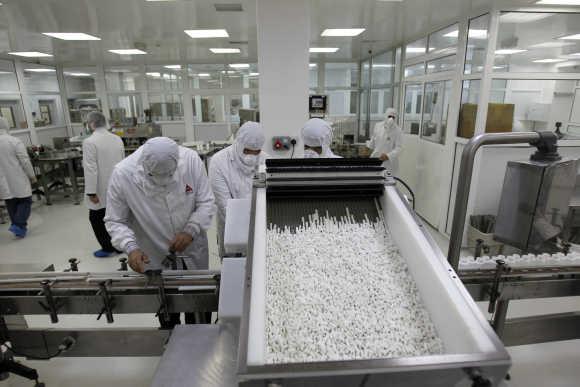
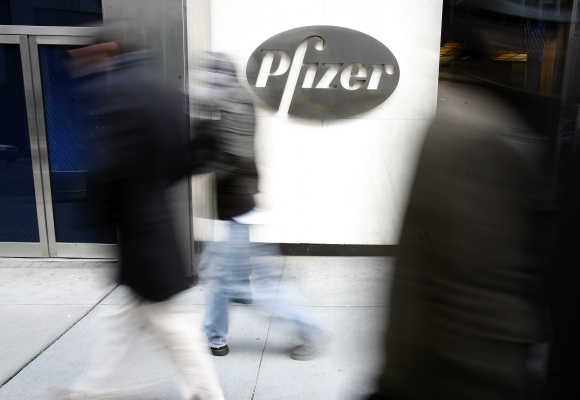
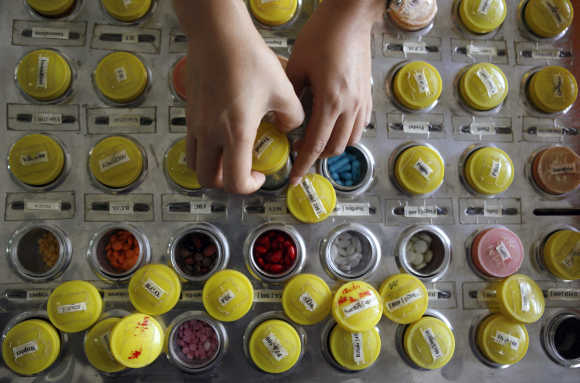

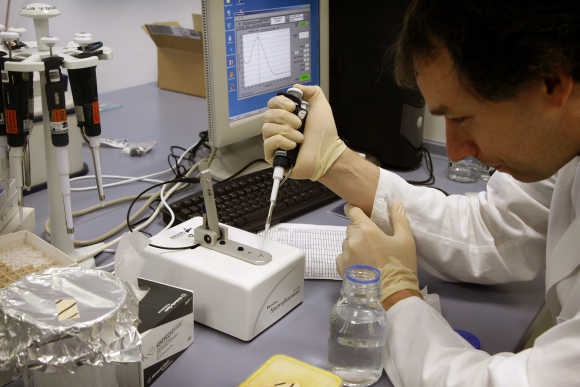
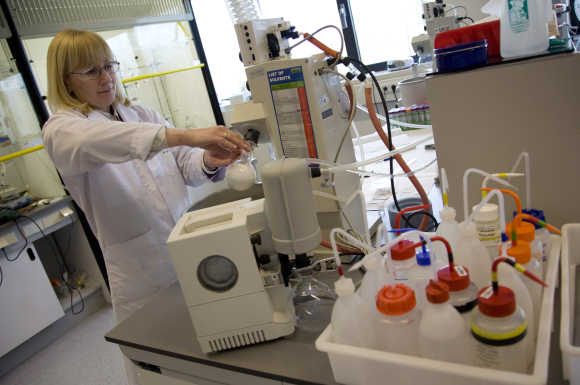

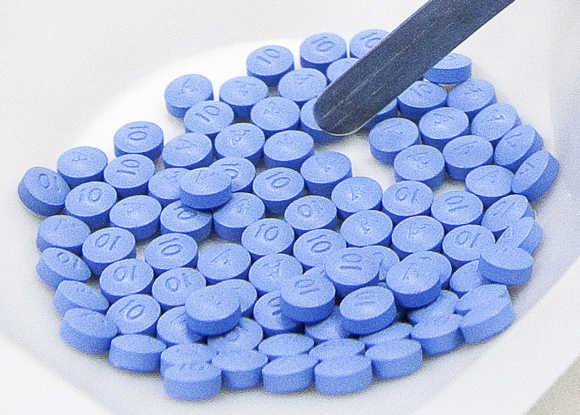
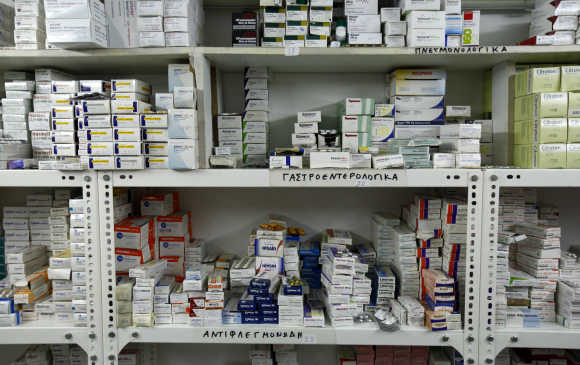

article